The natural leader became a beacon of calm and hope for her colleagues after the COVID-19 pandemic uprooted their lives and jobs.
“It was very quiet,” she recalls.
When the COVID-19 pandemic struck, Eng Kimchroy, 29, was living with her younger sister in a rental apartment, a 10-minute drive from the main airport in Cambodia’s capital, Phnom Penh.

Today, the chaos of honking cars and motorcycles has returned outside Eng’s bedroom window. It’s dawn. She puts on her black, square glasses, ties her fine hair back in a ponytail, and puts on her surgical face mask. She hops onto her standard Khmer motorcycle and fires up the engine. A trail of dust and smoke drifts in her wake as she joins the fray of motorbike traffic choking the busy streets.
Nearing the Berry Apparel garment factory, the throng of people walking in the middle of the street is hard to get through. At least a dozen garment factories are located within a one-kilometer radius. Eng works in one of them. At every corner, food stands abound and long lines of people ebb and flow to buy breakfast. A sharp contrast, indeed, with last year.
“We couldn’t work, hang out with others, let alone visit our family.” Her voice falters. “I missed them so much.”
COVID-19 in Cambodia
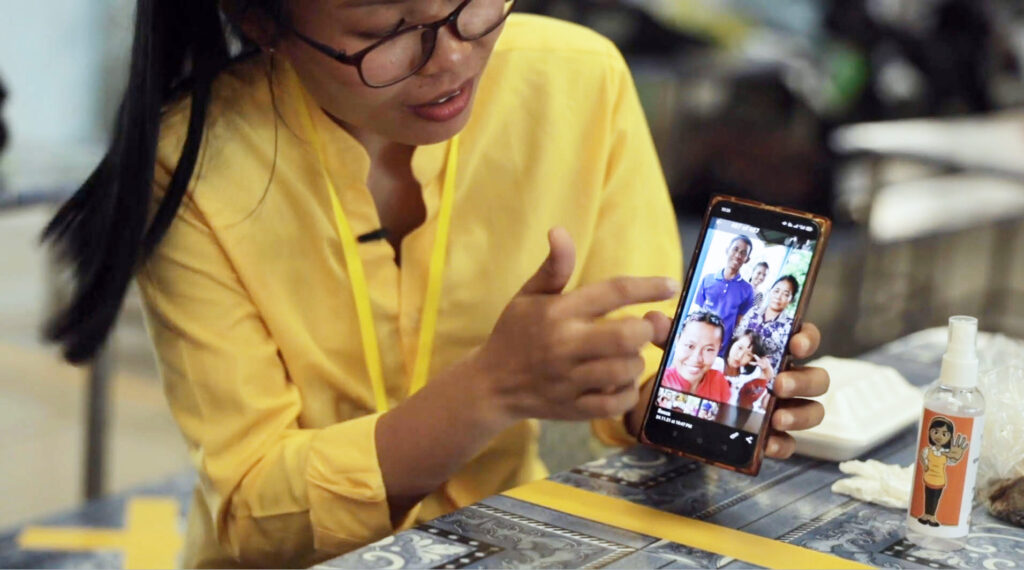
“I was terrified I’d catch COVID-19 and lose my job!” she exclaims. “I was obsessed with it day and night.”
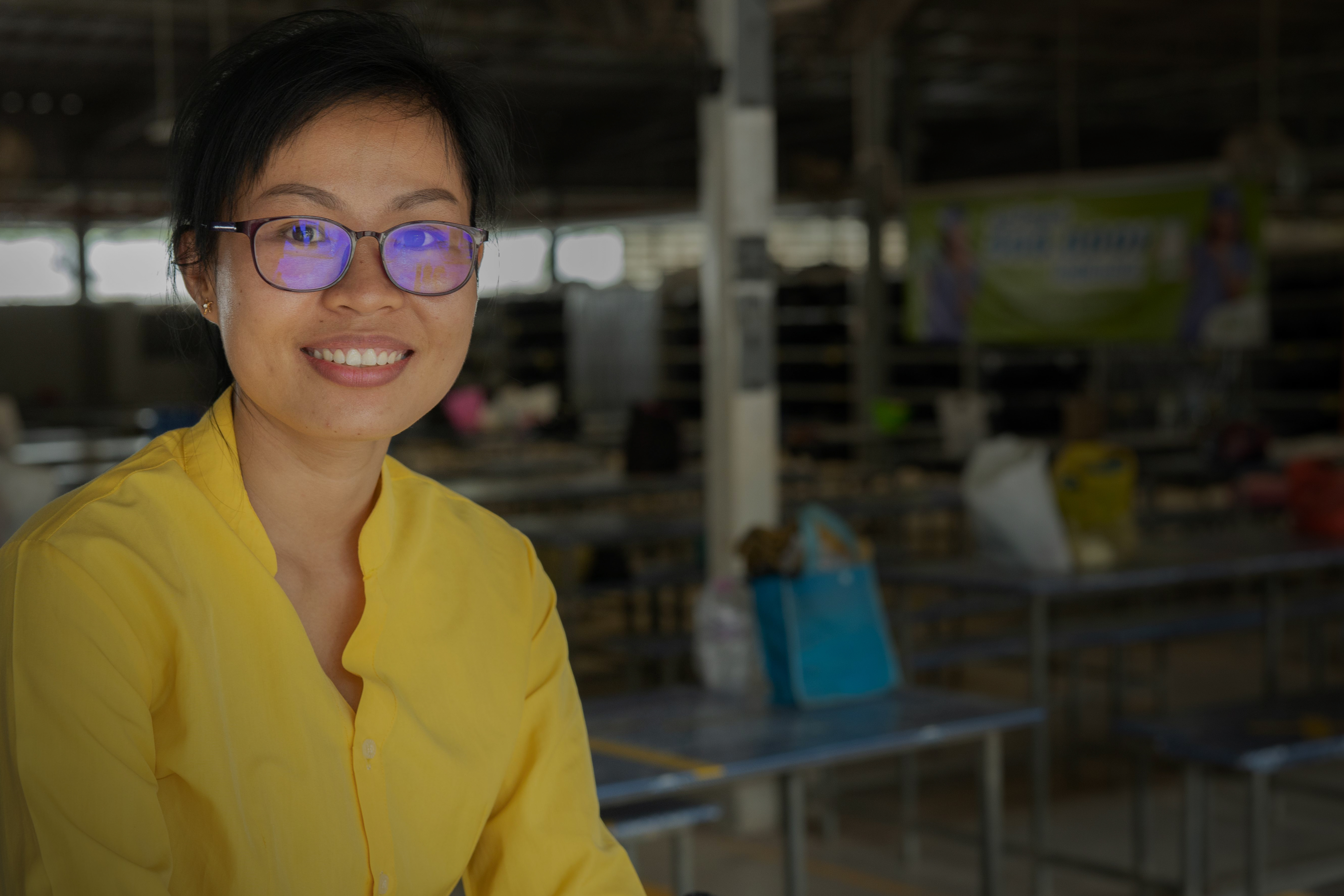
Protecting workers and promoting positivity
The International Labour Organization (ILO), together with its constituents and partners, has implemented a number of occupational safety and health (OSH) and income-supporting initiatives designed for garment sector workers and employers in seven countries across Asia and Africa. The German government provided funding for the project.
The OSH component of the project was implemented by the ILO’s Vision Zero Fund programme, in collaboration with the ILO Better Work programme. It covered seven countries, namely Cambodia, Bangladesh, Ethiopia, Indonesia, Laos, Madagascar, and Viet Nam. It included working with governments, employers’ and workers’ organizations, as well as other key stakeholders to implement large-scale awareness campaigns; training; distribution of personal protective equipment (PPE) to vulnerable workers and service providers; and technical support for workplace-level risk assessment and mitigation measures. The overall objective was to create a safe working environment for workers and employers, support business continuity and mitigate disruptions in the supply chain.
In Cambodia, the team realised that, to be most effective, their campaign needed a strategy to instill motivation, confidence, and positivity among workers. As a result, the ILO Cambodia team developed a human-centered initiative called Su Su, which means “do not give up.” The campaign’s concept and outreach strategy were developed based on first-hand data on the mental health support needs and social-media usage patterns among garment factory workers. The campaign introduced various engaging content, including live sessions, short videos/GIFs and stories of workers.
When the factory asked Eng to join the Su Su campaign, she did not think twice. The project mostly required her to spread safety information, as well as motivational messages.
“Before I joined the campaign, I was depressed, stressed, and anxious,” she recalls. I couldn’t think clearly. Always stressed, not happy. It was a very difficult
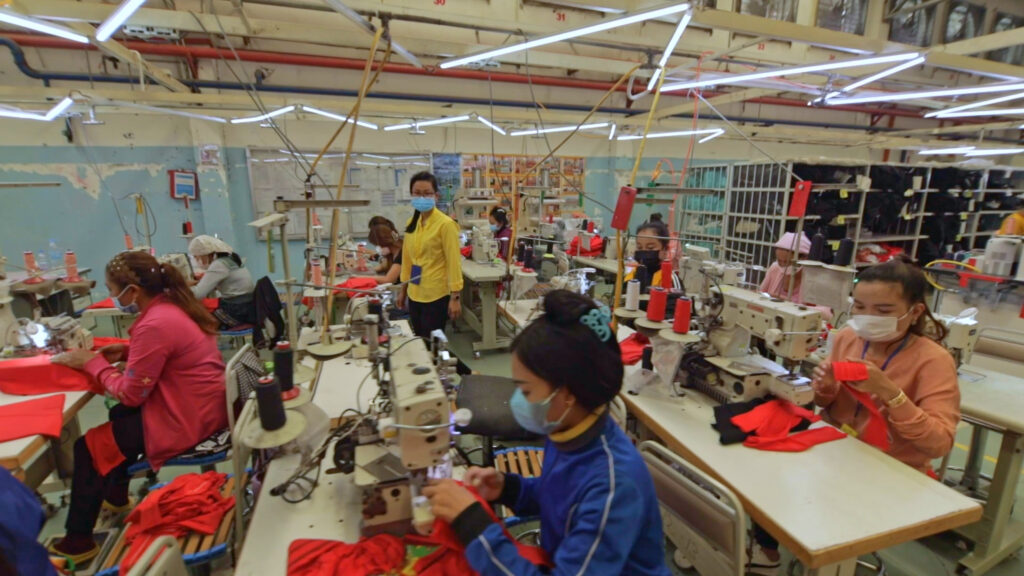
Lasting impact
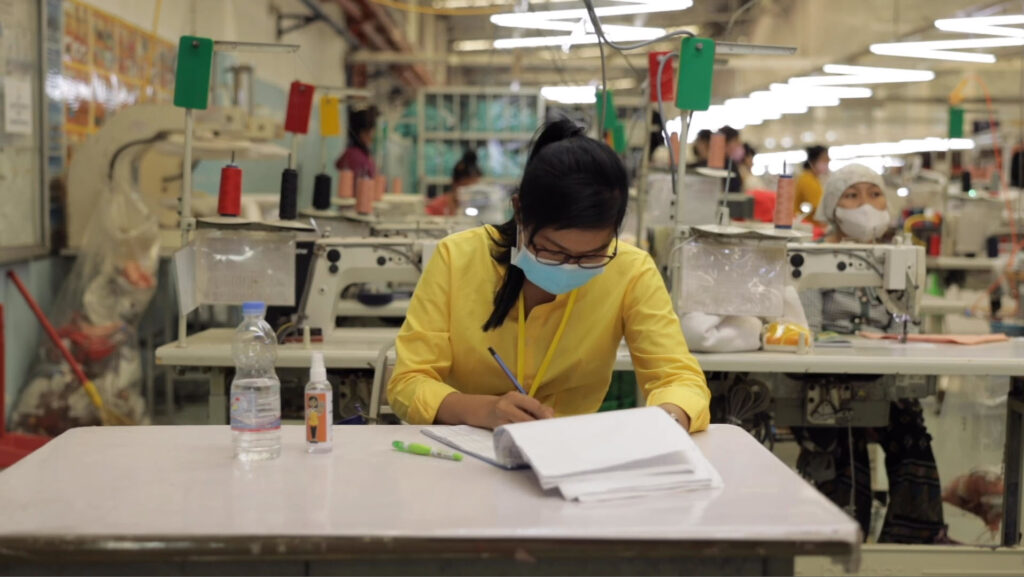
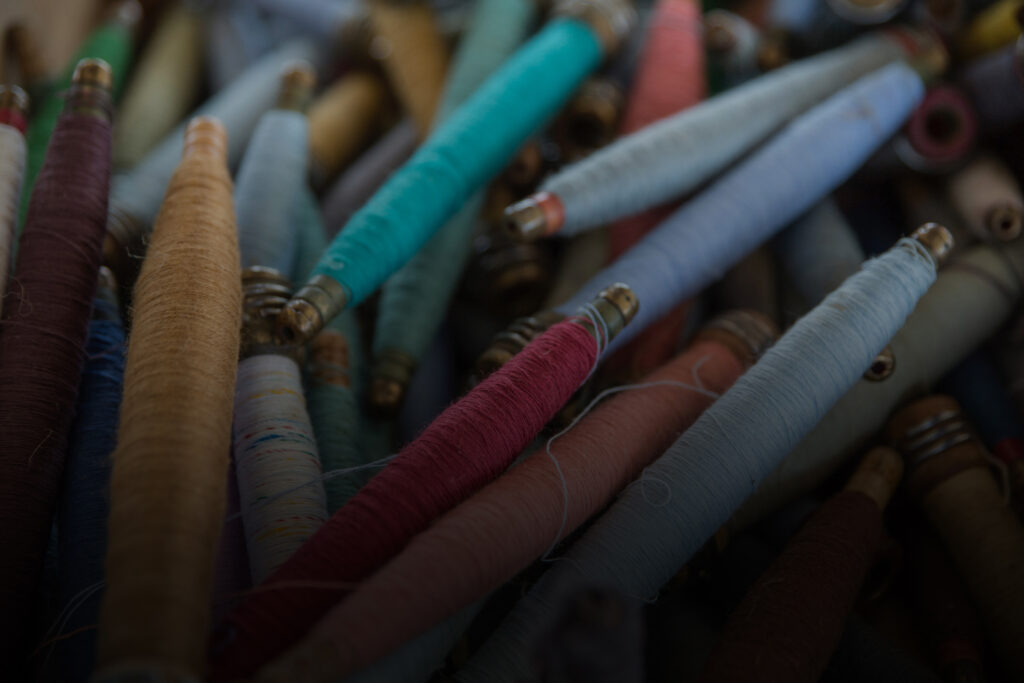
“After joining the Su Su campaign, I now have more awareness of protection measures against COVID-19,” she says. “It has motivated me and I think my positive attitude has been contagious. I encourage everyone to keep moving forward, to not give up.”
Learn more
This impact stories has been funded with contribution of the Federal Ministry of Economic Cooperation and Development.

